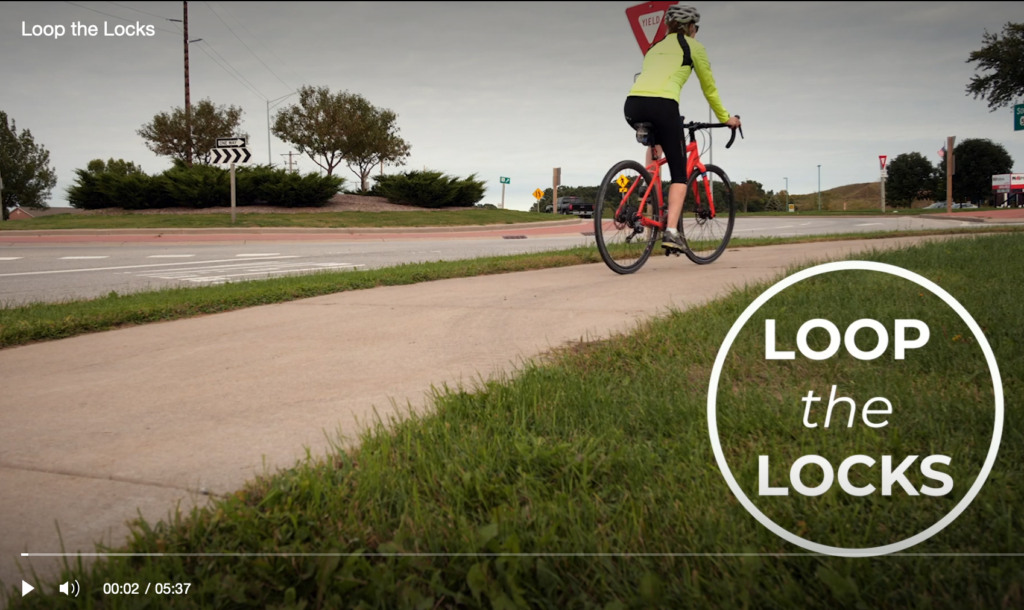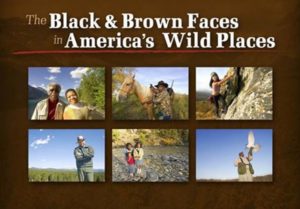Learning and experience can overcome racism in outdoor activities
As a child in a working-class, Black neighborhood in Columbus, Ohio, Dudley Edmondson was teased by his friends for his appreciation of nature. Now as a video producer, photographer and author, Dudley is a one-man campaign for overcoming the disconnect between African Americans and the outdoors.
His own connection with nature came as an escape from the stressful household brought on by alcoholic parents. He would get away physically and mentally to greenspaces near the family’s home.
He spoke to about 120 people through an online presentation Tuesday afternoon sponsored by Fox Cities Greenways, East Central Wisconsin Regional Planning Commission and the Community Foundation. The evening also included the release of a report on the Fox Cities Trail Summit held last February and the premier of a drone video on the Loop the Locks Trail.

Click to view. The Loop the Locks video debuted at the Fall Trail Summit held on October 27th. It was produced by a collaborative effort between the Community Foundation for the Fox Valley Region, East Central Wisconsin Regional Planning Commission, and Fox Cities Greenways, Inc.
Both are available as part of the “Trail Summit Series” on the “Trails” tab of foxcitiesgreenways.org.
Dudley lives in Duluth now, with ample access to the outdoors. But a history of slavery, segregation and racism continues to limit how many faces like his he sees in these outdoor places.
Working as slaves and share croppers, African Americans came to associate outdoors with hardship, he said. Then when they migrated at the start of the Industrial Age, jobs and the dream of a better life took them to big northern cities, separated even more from nature.
It didn’t help that national parks had segregated beaches and restrooms and being alone in the woods made them vulnerable to physical attacks. Safety is still a concern.
“I really feel African Americans aren’t safe anywhere in this country,” Dudley said.
His bird watching and photography hobbies take him to neighborhoods that are decidedly white. It’s not unusual for a police car to roll up to him in response to a complaint of a suspicious person. In one case, the officer told him, “You don’t look like you belong here.”
“Every single day we have to factor in what white people are going to think,” he said. That adds extra stress to life.
Practical reasons also prevent more outdoor activities, like lack of disposable income or transportation. Interacting with nature isn’t part of African Americans’ cultural history, he said. Most didn’t have the experience of going to grandpa’s 100-acre farm to learn about wildlife.
 Dudley tried to overcome these barriers by highlighting people of color who contributed to understanding the outdoors in his book “The Black and Brown Faces in America’s Wild Places.”
Dudley tried to overcome these barriers by highlighting people of color who contributed to understanding the outdoors in his book “The Black and Brown Faces in America’s Wild Places.”
Here are his suggestions for how to bridge the disconnect:
- Have greenspaces a reasonable distance to people no matter where they live.
- Do nature programs for families rather than just children. “You give a kid this magnificent experience that they may not have again until they’re an adult,” he said, if parents aren’t also informed about how to do outdoor activities.
- Make used gear for camping, hiking, bicycling, rock climbing, fishing, etc. available for people to own or borrow through “gear banks.”
- Teach about nature in the schools. “Make it as mandatory as knowing how to code,” he said.
- Invite people of color to serve on the boards of environmental and conservation organizations.
With the “browning” of America, Dudley said, it will be increasingly important that people of color understand and care about the outdoors because increasingly they will be the stewards of nature.



Leave a Comment